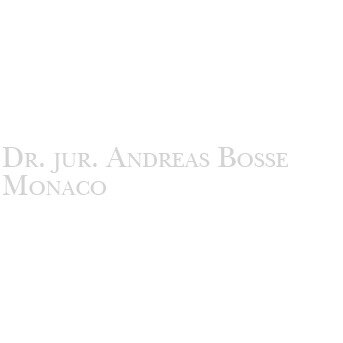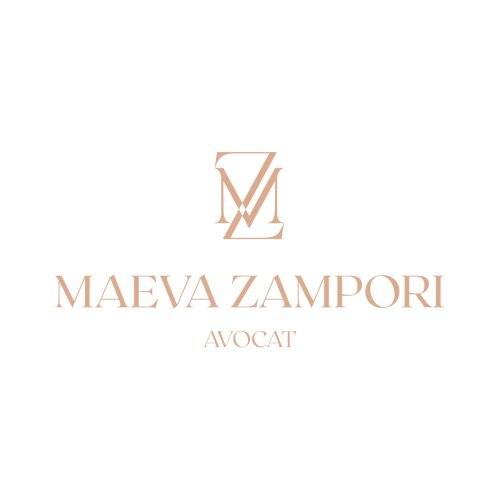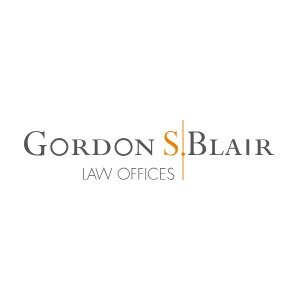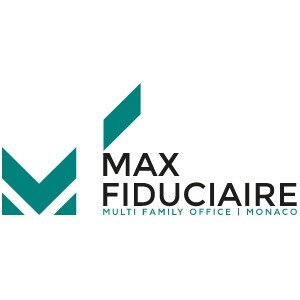Best Inheritance Law Lawyers in Monaco
Share your needs with us, get contacted by law firms.
Free. Takes 2 min.
Or refine your search by selecting a city:
List of the best lawyers in Monaco
About Inheritance Law in Monaco
Inheritance law in Monaco is primarily grounded in the Code Civil Monégasque, with significant influence from French civil law due to historical ties. The regime includes rules on forced heirship, wills, donations between living persons, and probate procedures. Notaries play a central role in drafting, authenticating, and recording succession arrangements. Monaco also addresses cross-border estates, given the mix of resident and non-resident families and investors.
Assets in Monaco are typically subject to local succession rules even when the decedent lived abroad or owned property in more than one jurisdiction. The system emphasizes protecting close family rights while providing mechanisms for valid international wills. Understanding local terminology such as notaire, héritier, and réserve héréditaire is important for practical planning and enforcement in Monaco.
Legal proceedings around inheritance often involve both the judicial courts and notarial offices. Courts handle contested matters and interpretation of the Civil Code, while notaries formalize and register wills, donations, and distribution plans. This dual path can affect timelines, costs, and the admissibility of testamentary documents in Monaco.
According to French civil law, inheritance rules and the concept of reserve héréditaire influence Monaco's approach to forced heirship in cross-border estates. This framework informs how Monaco handles asset distribution among heirs and the validity of international wills.
Practical takeaway: If you own Monaco real estate or worth assets in multiple jurisdictions, consulting a Monaco attorney or avocats and a notaire early can prevent costly disputes later. A tailored plan often requires coordination between local and foreign advisers to ensure consistency across jurisdictions.
Why You May Need a Lawyer
Cross-border estates frequently require coordinated advice from Monaco lawyers and foreign counsel. A real-world example: a Monaco resident dies leaving real estate in Monaco and investments in France; a lawyer helps align French and Monégasque succession rules. Collaboration between notaries and attorneys helps ensure valid wills and smooth transfer of ownership.
Disputes over forced heirship provisions commonly arise when a surviving spouse or children from different relationships contest a will. In Monaco, reserved shares for close relatives must be respected, and a lawyer can negotiate compromise or represent you in court. This prevents undermining the statutory rights of eligible heirs.
Complex asset structures, such as jointly held Monaco real estate, funds, or corporate interests in Monégasque companies, benefit from legal planning. A lawyer can analyze title chains, corporate agreements, and potential claims by creditors or other heirs. Proper planning reduces the risk of post-mortem litigation.
When a will is contested or needs to be authenticated across borders, a Monaco attorney or solicitor can assess whether the will complies with local formalities and international recognition. This ensures the document is enforceable in Monégasque courts and abroad. You gain clarity on timelines and required documents in advance.
For foreigners purchasing property or receiving assets in Monaco, navigating residency, tax, and inheritance implications requires specialized advice. A legal counsel helps manage expectations about potential charges, duties, and the impact on future succession rights. The outcome is a clearer, enforceable plan for heirs.
Notaries in Monaco often oversee the execution of wills and the distribution of assets. If a donor uses a complex instrument, such as a donation between living persons, a lawyer can review terms for compliance and potential tax consequences. This minimizes the risk of invalid provisions or unintended transfers.
Local Laws Overview
Monaco relies on the Code Civil Monégasque as the core framework for inheritance, including rules on succession, forced shares, and testamentary freedom within statutory limits. The law emphasizes protecting reserved portions for certain heirs and outlines how testamentary dispositions are validated and executed. Understanding these principles helps determine your options for planning or contesting estates.
Notarial procedures are central to Monaco's inheritance process. A notaire authenticates wills, records donations, and oversees the distribution of assets according to the law or a valid testament. Notarial actions ensure legal certainty and help resolve potential conflicts among heirs.
In cross-border contexts, Monaco recognizes the interplay between its own rules and foreign laws that may apply to a decedent's assets abroad. This requires careful coordination between Monaco judges, notaries, and foreign legal counsel. The result is a harmonized approach that respects both local requirements and international expectations.
Key terms you will encounter: héritier (heir), réserve héréditaire (forced heirship reserve), testament (will), donations acceptées (donations between living persons), notaire (notary), successions (successions), etat des biens (estate assets).
Frequently Asked Questions
What is the role of a notaire in Monaco inheritance matters?
A notaire authenticates wills and oversees the distribution of assets under Monaco law. They translate a decedent's wishes into enforceable instruments and ensure proper registration. Notaries coordinate with heirs and other professionals to minimize disputes.
How do I start a succession case in Monaco?
Begin by contacting a Monaco avocat or notaire to assess jurisdiction and available instruments. You will need death certificates, wills if any, property titles, and proof of relationship to the deceased. The process then moves through notification, inventory, and distribution steps.
When should I draft a will to ensure Monaco heirs are protected?
Draft a will as soon as possible if you own Monaco assets or have foreign property. A timely will helps align your wishes with local forced heirship rules and may prevent disputes. Regularly review your will after major life changes.
Where are Monaco inheritance laws published and updated?
The primary source is the Code Civil Monégasque. In addition, you can consult official Monaco government resources and reputable legal databases for updates. Cross-check changes with a Monaco attorney or notary.
Why do I need a Monaco lawyer for cross-border estate issues?
Cross-border estates involve differing rules on validity, recognition, and taxation. A local lawyer ensures compliance with Monégasque rules while coordinating with foreign counsel. This reduces the risk of invalid dispositions.
Can I challenge a will in Monaco if I believe it is unfair?
Yes, you can challenge a will in Monaco under grounds recognized by the Code Civil Monégasque, such as failure to respect reserved shares. A lawyer can evaluate your standing and guide you through the contested-will process.
Should I hire a Monaco notary or a private attorney for succession?
For most estates, a notaire handles authentication and distribution under local law. An attorney provides broader litigation and cross-border advice. Many cases combine both professionals for best results.
Do I need a local lawyer if I own only Monaco real estate?
Yes, local legal expertise helps navigate property transfers, title issues, and succession rules specific to Monaco real estate. A Monaco avocats can ensure that asset transfers align with the Code Civil Monégasque.
Is there an inheritance tax in Monaco?
Monaco has historically imposed limited or no inheritance tax on certain heirs, but exemptions and conditions apply. A lawyer can explain current charges, exemptions, and planning opportunities for your situation.
How long does a typical probate or succession process take in Monaco?
Timeline varies by case complexity, assets, and disputes. A straightforward transfer after a will can take several months, while contested matters may extend to years. A lawyer can provide a more precise timeline.
What documents are typically needed for Monaco inheritance filings?
Common documents include death certificate, proof of relationship, will or testament, asset titles, valuation of estate, and tax records. A notaire will provide a tailored list based on your situation.
Do I need to register a will in Monaco?
Notarial registration is standard for wills in Monaco to ensure enforceability. A notaire can advise on the best method to register and preserve a will according to local rules. International wills should be assessed for recognition.
What is the difference between a will and a donation entre proches in Monaco?
A will governs posthumous asset distribution, while a donation between living persons transfers assets immediately. Both require careful drafting to respect forced heirship and tax implications. A lawyer can help structure both properly.
Additional Resources
- Monaco Government Portal - Official source for constitutional and legal framework in Monaco, including civil code summaries and public notices. See official government information on inheritance and notarial processes. https://www.gouv.mc
- Legifrance - French Civil Code - Authoritative source for civil law concepts that influence Monaco inheritance rules, such as reserved portion and testament validity. https://www.legifrance.gouv.fr
- Notaires de Monaco Association (Notarial guidance) - Official resources on notarial practice in Monaco, including wills, donations, and probate proceedings. https://www.notaires-monaco.mc
Next Steps
- Identify your asset profile in Monaco and abroad, noting real estate, bank accounts, and corporate interests. This helps determine jurisdiction and needed documents.
- Consult a Monaco avocat or solicitor to assess whether a will or donation plan best fits your goals. Request a preliminary case assessment within 1-2 weeks.
- Engage a Monaco notaire to draft or authenticate your will or to supervise a donation plan. Schedule the initial meeting within 2-4 weeks after your consultation.
- Prepare essential documents: death certificates, proof of relationship, asset titles, tax documents, and any existing wills. Assemble these within 3-6 weeks.
- Obtain a formal asset inventory and valuation, coordinated by your legal team, to establish a clear estate picture. Plan for a 4-8 week window for valuations.
- Submit the succession plan to the appropriate Monaco authorities for probate or registration through the notaire. Expect 2-6 months for routine processing depending on complexity.
- Review and update your plan periodically, especially after major life events or changes in asset holdings. Schedule annual or biennial reviews with your advisers.
Lawzana helps you find the best lawyers and law firms in Monaco through a curated and pre-screened list of qualified legal professionals. Our platform offers rankings and detailed profiles of attorneys and law firms, allowing you to compare based on practice areas, including Inheritance Law, experience, and client feedback.
Each profile includes a description of the firm's areas of practice, client reviews, team members and partners, year of establishment, spoken languages, office locations, contact information, social media presence, and any published articles or resources. Most firms on our platform speak English and are experienced in both local and international legal matters.
Get a quote from top-rated law firms in Monaco — quickly, securely, and without unnecessary hassle.
Disclaimer:
The information provided on this page is for general informational purposes only and does not constitute legal advice. While we strive to ensure the accuracy and relevance of the content, legal information may change over time, and interpretations of the law can vary. You should always consult with a qualified legal professional for advice specific to your situation.
We disclaim all liability for actions taken or not taken based on the content of this page. If you believe any information is incorrect or outdated, please contact us, and we will review and update it where appropriate.
Browse inheritance law law firms by city in Monaco
Refine your search by selecting a city.














